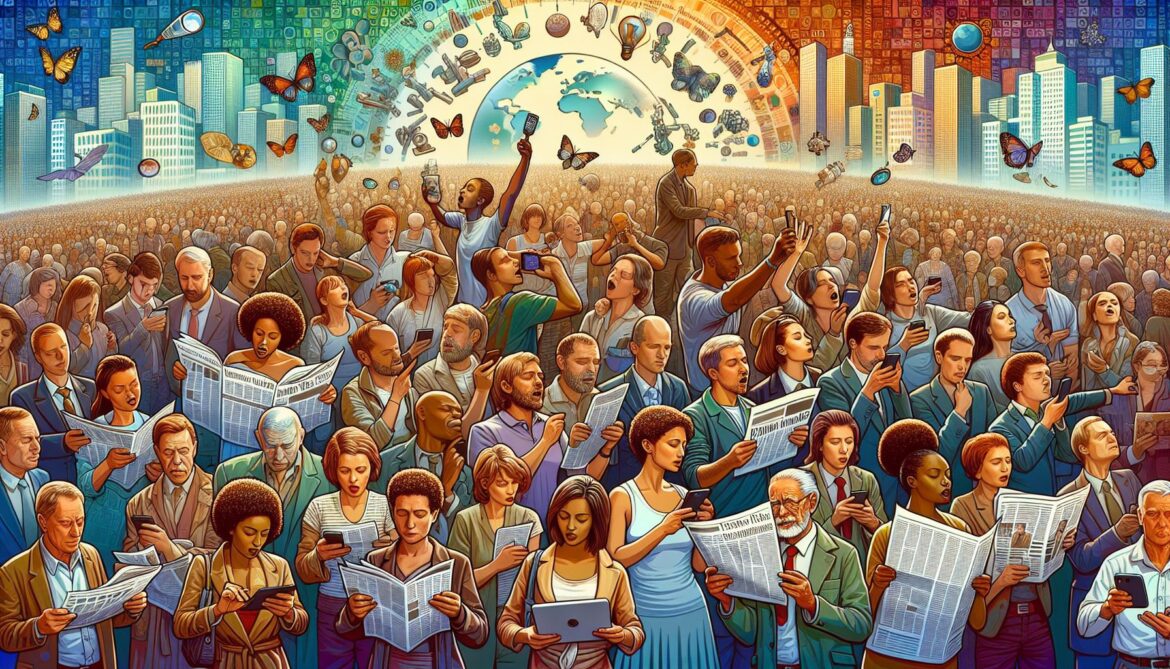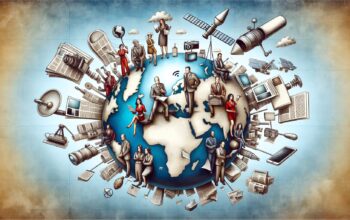
The importance of news cannot be overstated in our modern, rapidly evolving global culture. With its capacity to expose us to a multitude of perspectives, inform us of the evolving global landscape, and spark informed conversations, the news is no longer merely about reporting events but has become an avenue for furthering global change. These changes are not only evident in the events being reported, but also in how the news is disseminated, received, and interpreted. In this context, we are prompted to question how journalistic integrity can be upheld amid the clamor of digital voices and what role the media plays in shaping our societies.
 So, in marking out the territories of contemporary global news, we must first understand that the media landscape is constantly evolving. From traditional television broadcasts to internet-based platforms, there lies a broad spectrum of narratives vying for our attention. News outlets such as BBC, CNN, and Al Jazeera, among others, command international audiences through their extensive coverage of significant global events. Media conglomerates such as these have the power to steer global narratives, underlining the immense influence media yields on society.
So, in marking out the territories of contemporary global news, we must first understand that the media landscape is constantly evolving. From traditional television broadcasts to internet-based platforms, there lies a broad spectrum of narratives vying for our attention. News outlets such as BBC, CNN, and Al Jazeera, among others, command international audiences through their extensive coverage of significant global events. Media conglomerates such as these have the power to steer global narratives, underlining the immense influence media yields on society.
However, as we embrace the convenience of receiving news at the click of a button, courtesy of the digital age, we must contend with the challenges this new era poses. We are exposed to an overflow of information, often lacking the tools to discern credibility or flag false narratives — a pressing concern in our age dominated by “fake news.” This prevalence of misinformation prompts a crucial question: how can we maintain and prioritize journalistic integrity amid such an information deluge?
Journalism’s integrity, perhaps now more than ever, is key to society’s informed advancement. News organizations and individual journalists have the delicate task of avoiding bias and maintaining high ethical standards in their reporting. This task includes, but is not limited to, presenting an accurate representation of events, citing sources credibly, and ensuring the news is fair to all parties involved. A journalist’s conduct marks the difference between information and manipulation, nudging the public to form balanced perspectives and responsible opinions.
Looking at this complex media landscape, one might wonder what dynamism it brings to individual awareness and public opinion? News penetrates various societal layers, prompting discussions and influencing policy changes. A report on climate change, for instance, not only informs about melting glaciers or rising sea levels but also sparks conversations on sustainability and green practices. Issues related to our political structures, economies, cultural practices, and human rights – once compartmentalized within geographical boundaries – transcend these borders through global news platforms, influencing public awareness and shaping collective opinion.
In conclusion, we cannot underestimate the transformative power that news exerts over our societies, cultures, and individual perceptions. As we navigate this fragile digital era, journalistic integrity stands as an irreplaceable pillar, holding up the edifice of responsible global progress. The challenge lies in shaping an information-literate society capable of critically engaging with the incessant global narratives. If there’s one takeaway from this exploration, let it be this: news, with its profound ability to blur geographical boundaries and connect disparate voices, has become an essential tool in driving our shared global story forward.
Next Read: The Streaming Revolution: Reshaping the Landscape of Entertainment Culture



